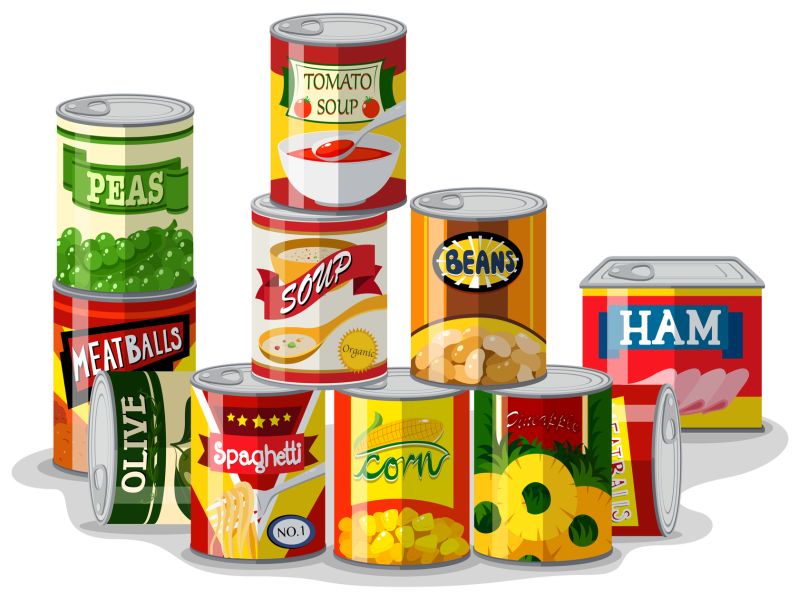Some Uncanny Facts About Canned Foods
By Len CanterHealthDay Reporter

WEDNESDAY, Dec. 5, 2018 (HealthDay News) -- With so much emphasis on fresh, farm-to-table foods, it's easy to overlook the value of canned items. These are convenient, often cheaper alternatives to fresh and frozen.
Use these tips to help you choose wisely.
When shopping, look for cans in good shape. Don't buy -- or keep -- cans that are dented, rusted or swollen. Cans have a packing code for tracking them through interstate commerce, but these numbers have nothing to do with their freshness. Look for a "best if used by" date for peak quality.
Canned foods are safe indefinitely as long as they're not exposed to either freezing temperatures or temperatures above 90 degrees. But foods with high acidity, like tomatoes and fruits, taste best if eaten within 12 to 18 months.
With such a long shelf-life, you can stock up when favorite foods go on sale, especially time-savers like canned beans, which are ready to use. Be sure that you're getting plain cooked beans, not with the added sugar and other ingredients of baked beans, for instance.
Now for the cautions.
Watch the salt. Salt, or sodium, is often used as a preservative, but you can shop for low- or reduced-sodium or no-salt-added varieties. Compare the sodium content of different brands on their nutrition labels and choose foods with the lowest amount. You can also drain and rinse canned food to reduce salt.
Watch the sugar. Again, read the ingredients list and avoid foods with added sugar. Compare the sugar content of different brands on the nutrition labels and choose foods with the lowest amount. When buying canned fruit, look for products that are canned in water or its own juice. If you have no choice, drain and rinse any foods packed in syrup.
More information
The Institute of Agriculture and Natural Resources at the University of Nebraska-Lincoln has more tips on buying, storing and eating canned foods.

The news stories provided in Health News and our Health-E News Newsletter are a service of the nationally syndicated HealthDay® news and information company. Stories refer to national trends and breaking health news, and are not necessarily indicative of or always supported by our facility and providers. This information is provided for informational and educational purposes only, and is not intended to be a substitute for medical advice, diagnosis, or treatment.

